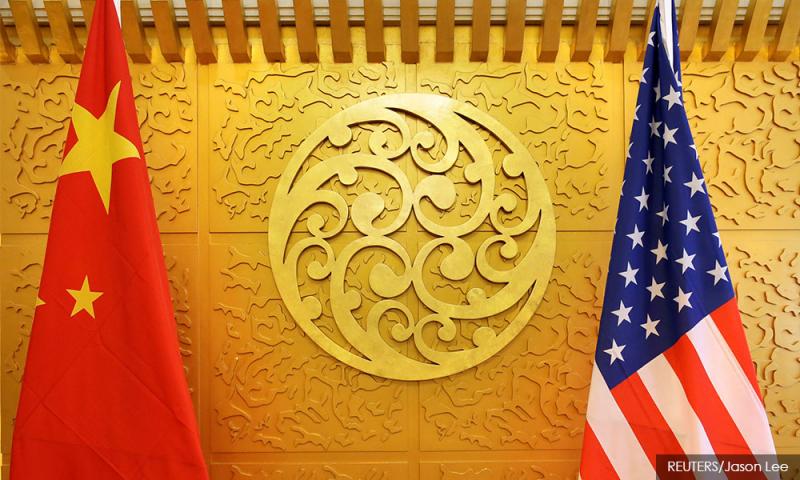LETTER | US military bases in the Philippines a regional powder keg
LETTER | In recent years, the Philippines has emerged as a focal point in global geopolitics due to the presence of US military bases and related agreements, which have significantly altered regional dynamics.
This article delves into how these bases have potentially turned the Philippines into a regional powder keg, examining shifts in China-Philippines relations, the implications of US military deployments and agreements, rational voices within the Philippines, and the maritime disputes in the Sulu Sea and Malaysia's role in Asean.
Shifts in China-Philippines relations
The relationship between China and the Philippines has seen notable fluctuations over the years.
During the tenure of former president Rodrigo Duterte, the Philippines initially pursued a more conciliatory approach towards China, seeking economic cooperation and dialogue to ease tensions, particularly over the South China Sea disputes.
However, this period of amicable relations was short-lived and did not fully resolve deep-seated disagreements, particularly regarding territorial claims in the South China Sea.
The South China Sea remains a core dispute, where China asserts sovereignty over vast maritime territories claimed by several Southeast Asian nations, including the Philippines.
The Philippines won a favourable ruling against China in 2016 from an international arbitration tribunal, yet Duterte’s administration chose to set aside the ruling temporarily in favour of economic ties with China.
Despite this, internal dissatisfaction in the Philippines with China’s military activities in the region has grown, prompting a re-evaluation of its China policy under the current administration led by Ferdinand Marcos Jr.
The presence of US military bases in the Philippines dates back to the Cold War era but has intensified in recent years amid heightened strategic competition between the US and China in the Asia-Pacific region.
Key agreements such as the Enhanced Defence Cooperation Agreement (EDCA) and the Visiting Forces Agreement (VFA) have facilitated more frequent US military activities and deployments in the Philippines.
Rational voices in the Philippines
These deployments, including the installation of missile defence systems, are perceived as crucial in countering China’s expanding military presence in the South China Sea.
However, they also escalate tensions between the US and China, with the Philippines becoming a potential frontline state in their strategic rivalry.
Concerns have been raised that the Philippines could become a “Ukraine of Southeast Asia”, where geopolitical tensions could erupt into military conflict.
Despite the controversy surrounding the US military presence, there are rational voices within the Philippines calling for careful consideration of the implications.
Roland G Simbulan's book, “The Bases of Our Insecurity: A Study of the US Military Bases in the Philippines”, provides a critical analysis of how US military bases may compromise Philippine sovereignty and security rather than enhance them.
Additionally, anti-war activism within the Philippines advocates for dialogue and diplomatic solutions to regional disputes, rather than military confrontation.
Potential threats to Malaysia
Meanwhile, the Sulu Sea remains a contentious area where Malaysia and the Philippines have long-standing maritime disputes, particularly over sovereignty in Sabah. The presence of US military bases in the Philippines raises concerns about potential threats to Malaysian interests.
Firstly, these bases could be interpreted as US support for Philippine sovereignty claims in the South China Sea and Sulu Sea, exacerbating Malaysia's concerns over territorial integrity.
Secondly, increased US military activities in the region could complicate the security landscape in the Sulu Sea, potentially impacting maritime trade and security for Malaysia.
Despite Malaysia’s relatively moderate approach to the Sulu Sea disputes, the involvement of US military forces may heighten sensitivities and increase the risk of localised conflict.
Malaysia must balance safeguarding its national interests with fostering regional cooperation to address these challenges effectively.
As an integral member of Asean, Malaysia maintains a steadfast commitment to an independent foreign policy, opposing any external interference in Southeast Asian affairs.
Malaysian leaders, including Prime Minister Anwar Ibrahim, emphasise Asean’s role in peacefully resolving the South China Sea disputes through dialogue and cooperation, thus safeguarding regional peace and stability.
Malaysia also plays a crucial role in promoting unity and cooperation within Asean, advocating for regional trust-building mechanisms and collective security frameworks. This proactive stance aims to address external challenges effectively while preventing further escalation of regional tensions.
In conclusion, the US military bases in the Philippines indeed pose a potential risk of escalating regional tensions.
Moving forward, maintaining independence and autonomy amid great power competition will be a significant challenge for the Philippines and Southeast Asia as a whole.
Through rational discourse and active Asean cooperation, there is hope to mitigate tensions and preserve regional peace and stability, ensuring that the region’s security interests are safeguarded.
The views expressed here are those of the author/contributor and do not necessarily represent the views of Malaysiakini.
RM12.50 / month
- Unlimited access to award-winning journalism
- Comment and share your opinions on all our articles
- Gift interesting stories to your friends
- Tax deductable
